Energy and Climate Equity Strategy
NYSERDA’s Commitment to an Inclusive Clean Energy Economy
NYSERDA recognizes the role that public policy has played in perpetuating inequities faced by historically marginalized communities while working to leverage its critical role in addressing the climate crisis, energy injustice, and the legacy of environmental racism. To meet the State’s ambitious climate and equity goals, NYSERDA is transforming its approach to advance energy and climate justice through investments in our economy and workforce that address historic inequities and improve health and resilience for all New Yorkers.
NYSERDA is working to address the challenges historically marginalized communities have faced in accessing programs and using their lived experience to inform solutions that support an inclusive clean energy transition.
With the creation of an Energy and Climate Equity team to drive NYSERDA’s Climate Equity Strategy, NYSERDA is shifting investments to reduce burden and increase benefits to frontline and historically marginalized communities while designing inclusive pathways for meaningful exchange to ensure these communities are front and center in the decisions that impact their everyday lives.
New York State Planning and Coordination for Climate Equity
Equity and climate justice are cornerstones of New York State’s policies and plans focused on advancing clean energy and combatting climate change.
Get updates on NYSERDA's work building an inclusive clean energy economy.
The Climate Act ![]() requires that Disadvantaged Communities receive a minimum of 35 percent, with a goal of 40 percent, of the benefits from investments in clean energy and energy efficiency programs. This goal also extends to energy-related projects in housing, workforce development, pollution reduction, transportation, economic development, and low- and moderate-income energy assistance. Disadvantaged Communities were identified based on criteria established by the Climate Justice Working Group
requires that Disadvantaged Communities receive a minimum of 35 percent, with a goal of 40 percent, of the benefits from investments in clean energy and energy efficiency programs. This goal also extends to energy-related projects in housing, workforce development, pollution reduction, transportation, economic development, and low- and moderate-income energy assistance. Disadvantaged Communities were identified based on criteria established by the Climate Justice Working Group ![]() to ensure that frontline and underserved communities benefit from New York’s clean energy transition.
to ensure that frontline and underserved communities benefit from New York’s clean energy transition.
NYSERDA has worked in tandem with representatives from historically marginalized communities to integrate climate equity in the following New York State plans and initiatives.
-
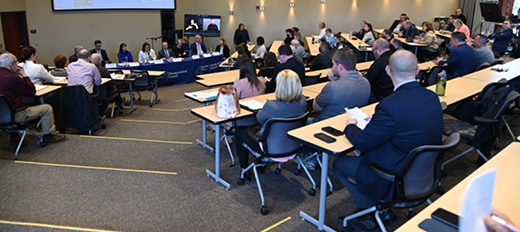
Climate Action Council Scoping Plan
Read More Climate Action Council Scoping Plan (opens in new window)Discover New York’s framework for reducing greenhouse gas emissions, increasing renewable energy use, and ensuring all communities equitably benefit in the clean energy transition.
-
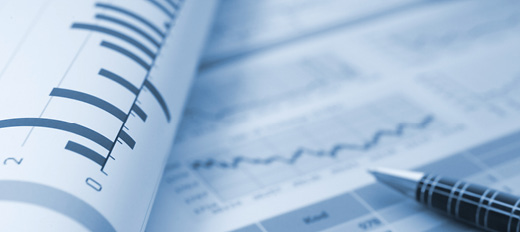
Disadvantaged Communities Barriers and Opportunities Report
Read More [PDF] Disadvantaged Communities Barriers and Opportunities Report (opens in new window)Access the full report, which assesses why some communities face disproportionate climate impacts and provides recommendations to ensure that the benefits of clean energy are accessible for all New Yorkers.
-
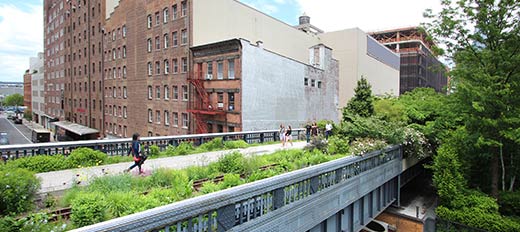
Disadvantaged Communities Criteria
Read More Disadvantaged Communities Criteria (opens in new window)Learn about the process to establish the criteria and view indicator details for census tracts across New York.
-
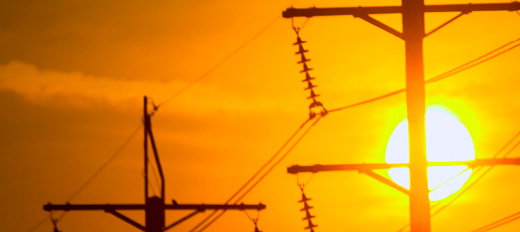
Extreme Heat Action Plan
Read More Extreme Heat Action PlanLearn about the interagency effort to address the present and future impacts of extreme heat.
Equitable Community Engagement
NYSERDA is focused on shifting to initiatives that allow for deeper, more coordinated engagement and collaboration with historically marginalized communities around program planning and policy development. The initiatives below are intended to create more inclusive pathways for meaningful community input and to shift NYSERDA investment and programs to reduce burden and increase benefit to frontline communities through our clean energy initiatives and programs.
-

Regional Clean Energy Hubs
Read More Regional Clean Energy HubsTeams of local community-based organizations providing hands-on support to help New Yorkers navigate clean energy opportunities for their home, business, or career.
-
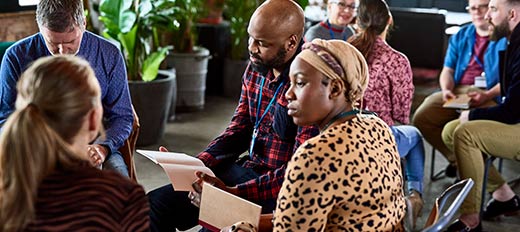
Energy Equity Collaborative
Read More Energy Equity CollaborativeA shared space for collaboration between those serving and representing historically marginalized communities and NYSERDA and State government partners.
-

NY Energy Advisor
Read More NY Energy Advisor (opens in new window)A one-stop shop site to help low- to moderate-income New Yorkers get access to personalized energy savings programs.
-

Paying for Community Expertise
Read More Paying for Community ExpertiseReimbursement for community stakeholders for their contributions to NYSERDA’s policies, programs, and planning.
Internal Operations
NYSERDA is also integrating climate equity into internal operations and organizational culture with support from the Energy and Climate Equity team. This includes the Energy Equity Stewardship Network, a peer-to-peer learning network within NYSERDA that provides staffs with tools and resources to better understand climate equity issues and incorporate equity considerations into programs and policies. Additional examples of NYSERDA’s efforts to integrate equity across the organization include:
- Cecil Corbin-Mark Environmental Justice Fellowship: This joint initiative with WE ACT for Environmental Justice is an avenue for individuals from underrepresented or frontline communities to contribute to policy and program development, gain professional experience, and advance New York State’s climate equity goals.
- Diversity Equity and Inclusion Strategic Plan: Formally launched in 2020, this plan established guiding principles and goals focused on building a diverse, equitable, and inclusive culture within the organization.
Connect With Us
Do you have any questions, feedback or would like to learn more about NYSERDA’s energy equity and climate justice initiatives?
Get in Touch
